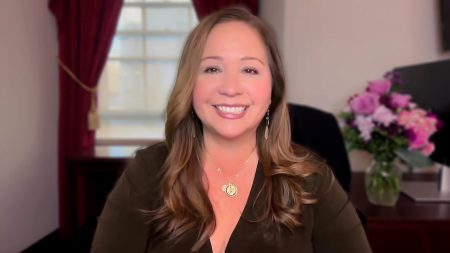Democrats Turn to Defensive Medicine
 |
| Large majorities of the population favor a public option for those who cannot afford insurance. Photo: Urban News |
by Michael Hopping
Prospects for major healthcare reform dimmed dramatically last month. Massachusetts Republican Scott Roberts won the Senate seat that once belonged to reform champion Edward Kennedy. Roberts’ election broke the Democrats’ shaky supermajority in the Senate and opened the way for a united Republican caucus to block Democratic initiatives with a threat of filibuster.
Congressional Democrats, aware of slipping poll numbers in favor of reform and fearful of a national backlash against incumbents in this fall’s elections, were undecided about how to respond.
House Speaker Nancy Pelosi and Senate Majority Leader Harry Reid
discussed the possibility of parliamentary maneuvering to salvage the
existing Senate version of healthcare reform legislation and pass
companion “reconciliation” legislation that essentially amends the
Senate bill to better suit the House. Reconciliation bills, which must
relate to federal spending, can’t be filibustered in the Senate: a
simple majority suffices to pass them.
Other Democrats retreated from last year’s “fierce urgency of now” with
regard to healthcare. Retiring Senator Chris Dodd, who helped craft the
Senate bill, advised his colleagues to “take a breather for a month or
six weeks.”
Liberal Congressman Dennis Kucinich voted against the existing House
bill. On the January 28 edition of MSNBC’s The Ed Show, Kucinich said
Congress should delay healthcare legislation until after a jobs bill is
passed. Then he favors starting over with a “Medicare for All” approach.
President Obama asked Congress in his State of the Union address not to
“run for the hills.” He said, “I will not walk away” from Americans who
can’t get affordable health insurance. The president then distanced and
distinguished himself from Congress by adding, “and neither should the
people in this chamber.” Obama has a history of careful word choice. He
did not use the word “must,” opting instead for the weaker “should.”
This rhetorical fine point preserved his image as a reform advocate
while limiting his responsibility in the event Congress fails to pass a
bill.
Compounding Democratic worry about voter discontent, a new Supreme
Court decision, “Citizens United v. Federal Elections Commission,”
loosened the rules for corporate electioneering. Corporations are still
barred from directly contributing to campaign coffers. But oil
companies, insurance companies, unions, and non-profits are now free to
spend as much as they want to elect or defeat political candidates by
name, as long as the ads aren’t coordinated with a political party or a
candidate’s campaign.
Republican leaders hailed the decision as a victory for free speech.
Democrats said the court had opened the floodgates to further corporate
corruption of the electoral process. Obama and Democratic leaders began
considering how to mitigate the ruling with new laws or even a
constitutional amendment. The latter might be necessary because
corporations became “persons” with constitutional rights when a court
reporter’s summary incorrectly described an 1886 Supreme Court decision
(the reporter claimed the Court had decided the constitutional
question, while in fact the unanimous Court had specifically refused to
do so). An amendment to revoke “corporate personhood” now would ease
the task of regulating corporate “speech.”
Republicans said that Dems will get more union money. Republicans,
historically the party of big business, seem better positioned to
benefit from the largesse of industries with a wish list. Democrats
interested in a share of those funds would presumably have to toe the
corporate line as well. On healthcare, it would mean protecting the
interests of private insurance companies. Progressive Democrats contend
that the Senate version of healthcare reform already does too good a
job of that.
Only days after the Citizens United decision, Obama flat-footedly
adopted the full corporate line on energy independence in his State of
the Union speech. Previously, Republicans had been more associated with
calls for building new nuclear plants, offshore drilling, and clean
coal.
Congressman Heath Shuler, the Blue Dog Democrat representing the 11th
congressional district that includes Asheville, voted against the House
version of healthcare reform on grounds that it didn’t do enough to
contain costs or control waste and abuse. He was also leery of more
government involvement in healthcare.
Shuler’s office responded to questions about where he stands on the
Senate healthcare bill by referring me to an out-dated press release
detailing his reasons for opposing the defunct House version. A request
for clarification went unanswered.
The congressman’s views on the Citizens United decision are similarly
unclear. While “Rep. Shuler is obviously tracking the issue closely,” I
got no answer to a direct question about whether he supports or opposes
the Supreme Court ruling. Nor was there any indication about the
desirability of any particular legislative approach to mitigating it. I
was told that if any legislation is enacted, it wouldn’t affect this
election cycle.
In this contentious year it seems likely that Representative Shuler
will not be the only Democrat who chooses to keep his head so firmly in
his bunker.






